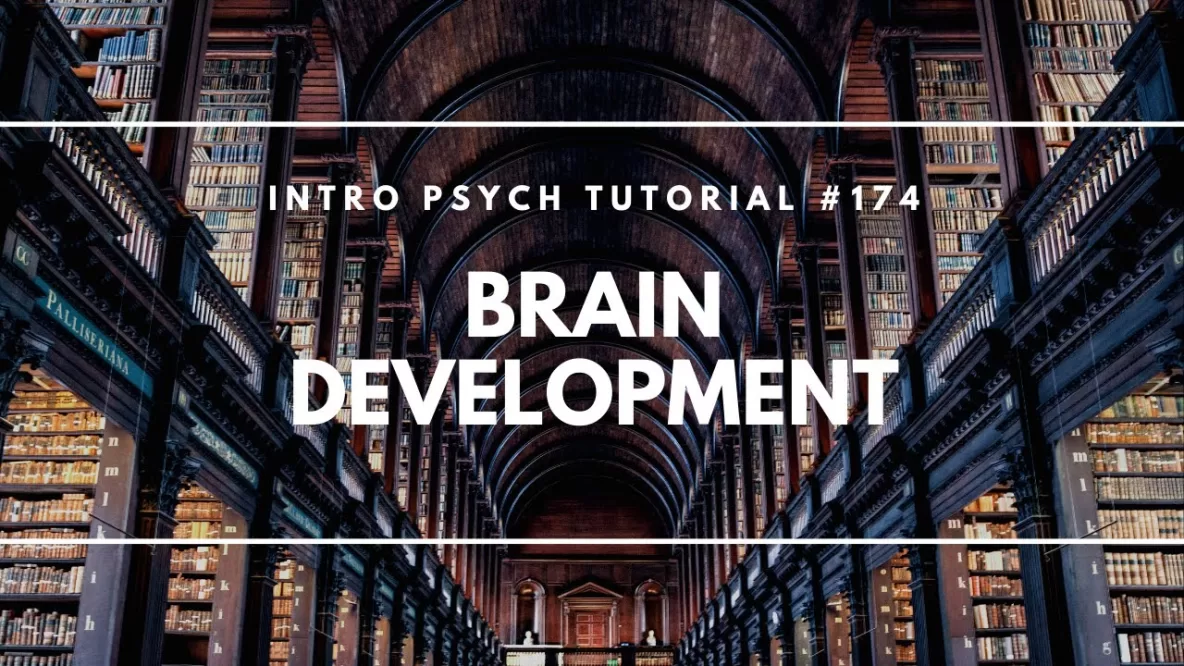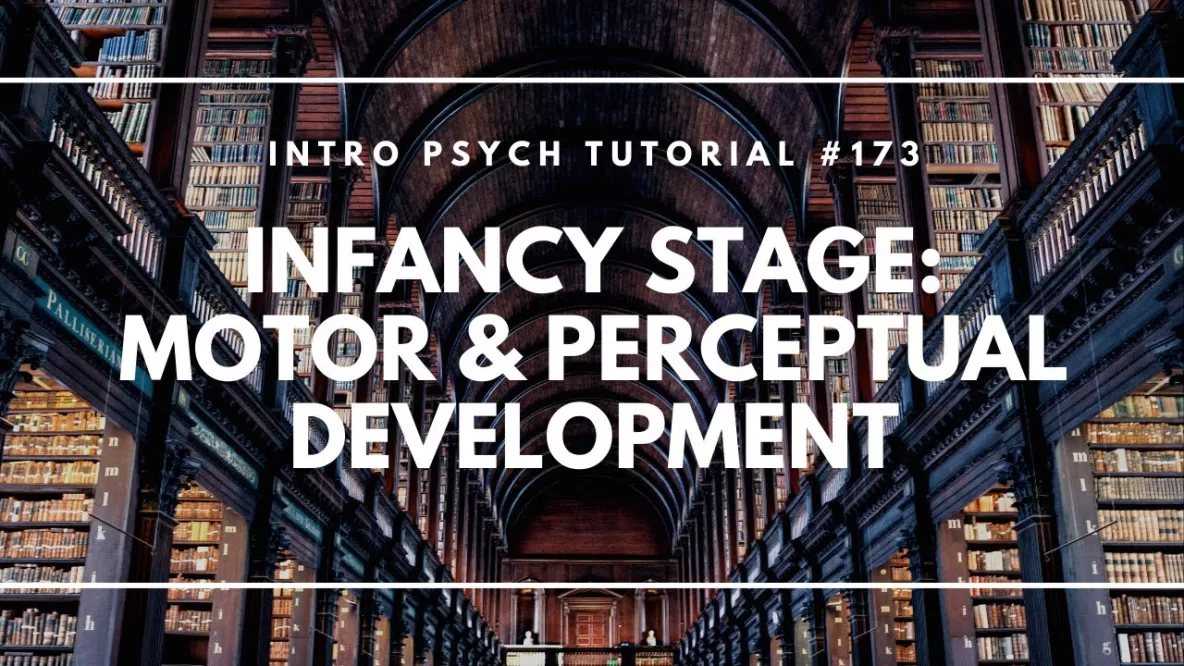In this video I consider how it is that we improve our skills and abilities and how children make progress through different stages of development. This brings us to the work of Soviet psychologist Lev Vygotsky and his notion of the zone of proximal development. This refers to tasks outside of a child’s current level of ability that can be … Read More
Cognitive Development: Concrete Operational & Formal Operational Stages
In this video I discuss Piaget’s last two stages of cognitive development; the concrete operational stage and the formal operational stage. The concrete operational stage (from about age 6-11) is characterized by improved understanding of the operations of the physical world but errors in abstract reasoning and hypothetical thinking. These appear in the formal operational stage, which begins around age … Read More
Piaget’s Sensorimotor Stage of Cognitive Development
In this video I begin describing the 4 stages of Piaget’s theory of cognitive development: sensorimotor, preoperational, concrete operational, and formal operational. Then I provide details of the sensorimotor stage along with more recent research suggesting that infant understanding of the world may be more detailed than Piaget proposed. Infant demonstrating the A-not-B error: https://www.youtube.com/watch?v=lhHkJ… Scientific American Frontiers video with … Read More
Early Brain Development
In this video I discuss brain development and begin with the idea of infantile amnesia. Memories before about the age of 3 are very rare, suggesting that the infant brain is not yet developed to store episodic memories, though it can form other types of memories and associations. From age 3-6 our brains undergo a period of rapid progress and … Read More
Infancy Stage: Motor & Perceptual Development
In this video I introduce some terms for understanding infant development, particularly for motor and perceptual skills. Infants are born with a number of reflexes (such as the rooting reflex and sucking reflex) which are gradually replaced with voluntary control as motor skills improve. Developmental milestones for motor skills generally follow the cephalocaudal rule (head-to-tail) and the proximodistal rule (near-to-far). … Read More
Prenatal Development
In this video I discuss prenatal development from conception until birth. This can be divided into the germinal stage, embryonic stage, and fetal stage. Conception occurs when a sperm cell and egg cell join to create a zygote, which then travels down the fallopian tube and attaches to the uterus. This then develops into an embryo with a heart and … Read More
Erikson’s 8 Ages of Man
In this video I introduce developmental psychology, which considers how we develop physically, cognitively, socially, and morally over our lifespan. I discuss some of the recurrent themes we will see in this chapter and then describe Erikson’s division of life into 8 ages: oral-sensory, muscular-anal, locomotor-genital, latency, adolescence, early adulthood, middle adulthood, and maturity. Each of these stages has its … Read More
Motivation & Goal-Setting
In this last video on motivation I consider the relationship between motivation and the goals that we set for ourselves. I discuss the importance of setting self–concordant goals which are intrinsically motivated and then discuss strategies for achieving goals. In order to maintain motivation for the specific behaviors that need to be done in order to achieve a goal, it … Read More
Conscious & Unconscious, Approach & Avoidance Motivations
In this video I discuss how motivations may be conscious or unconscious influences on behavior. I describe some of the unconscious motivations proposed by Henry Murray and David McClelland and how external conditions may activate motivations. Next I describe the distinction between approach and avoidance motivations and how these may conflict with one another, either in approach–approach conflict, avoidance–avoidance conflict, … Read More
Delay of Gratification & Ironic Effects of Punishment
In this video I introduce the concept of delay of gratification and the famous Marshmallow Test. Mischel, Shoda, and Rodriguez found that the ability to delay gratification at age 4 was associated with higher social competence, coping skills, and even SAT scores later in life. Next I consider ironic effects of punishment including the idea that different levels of threats … Read More










